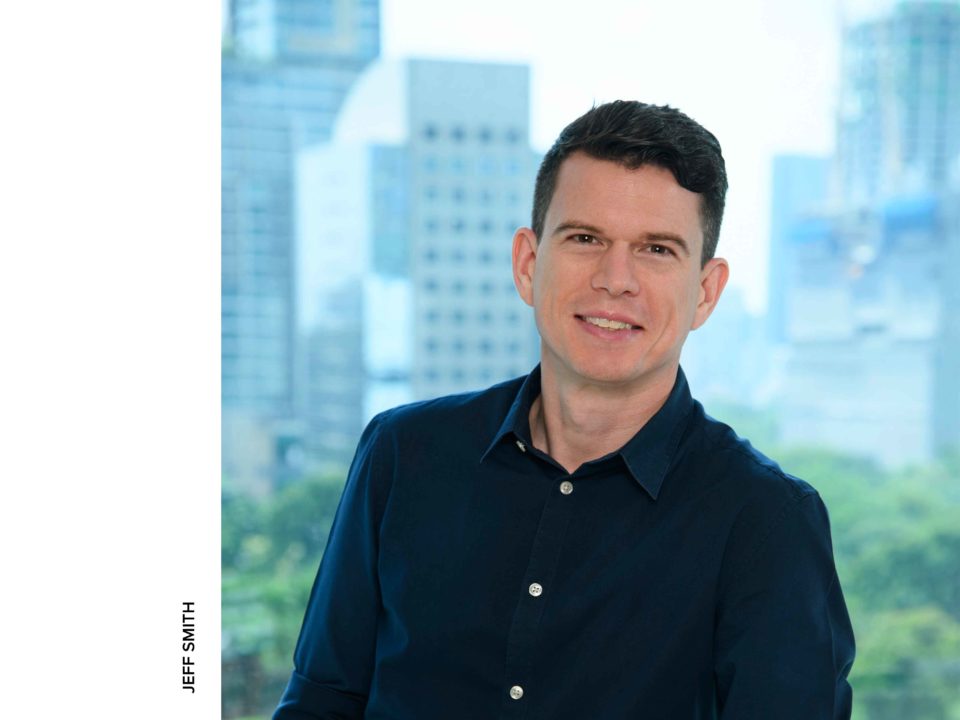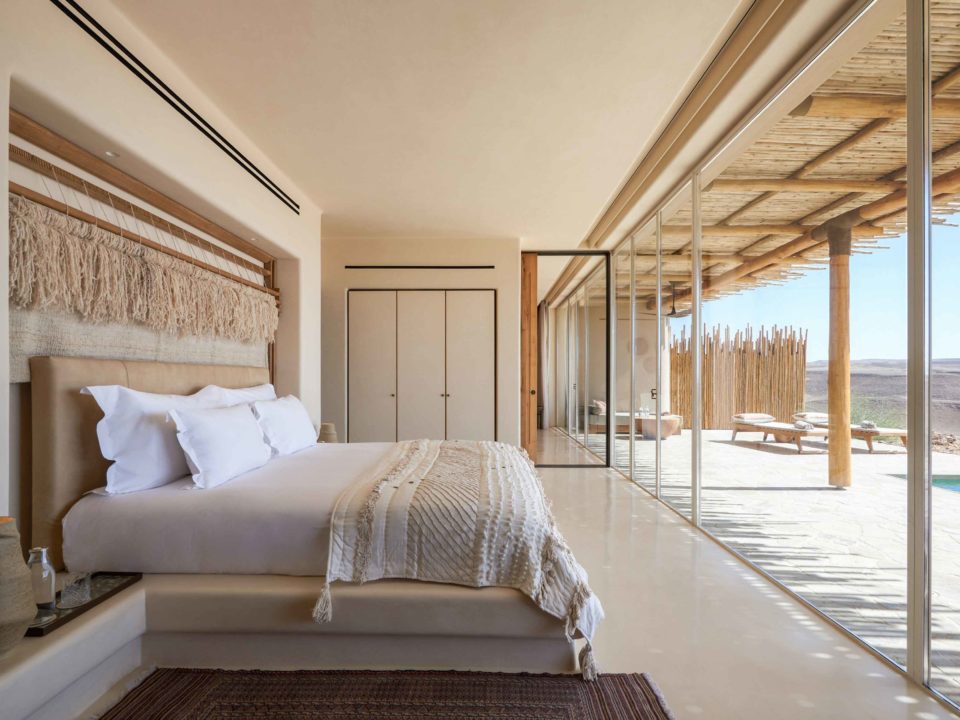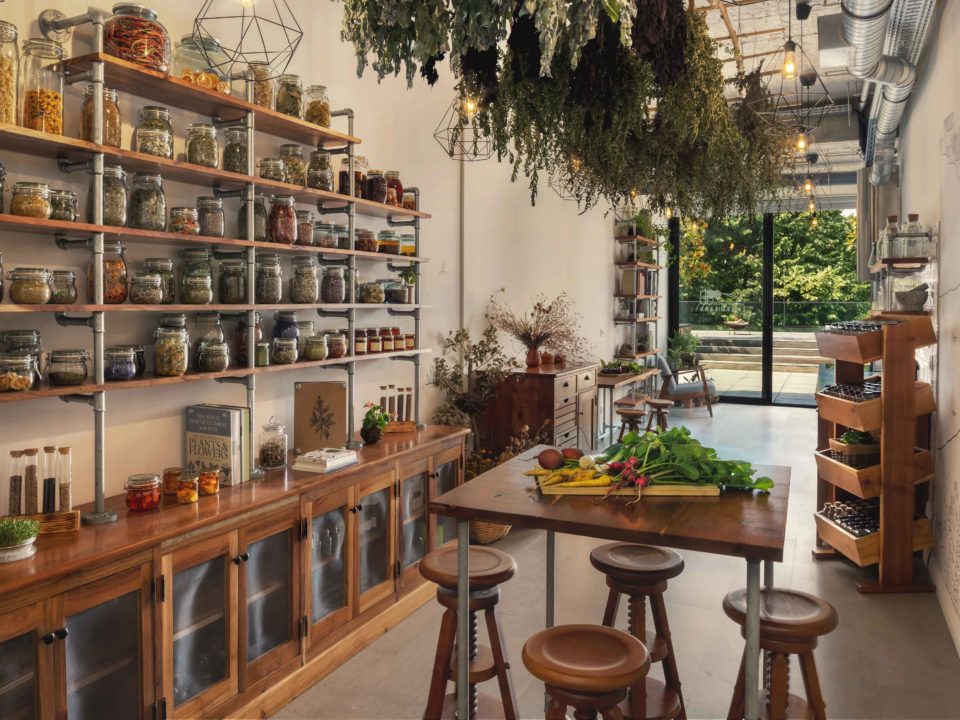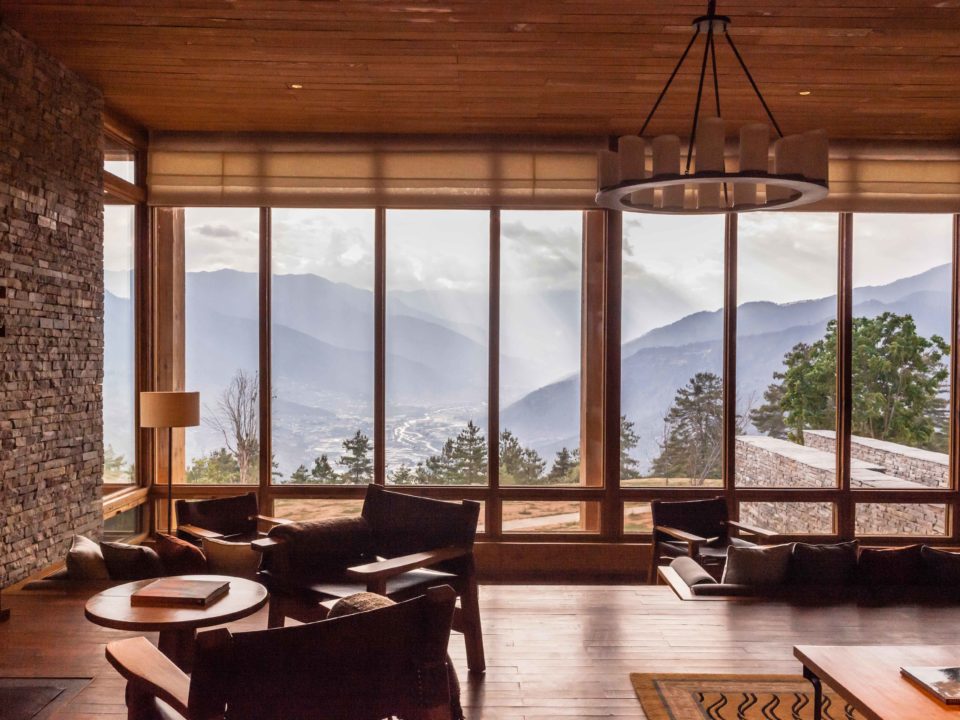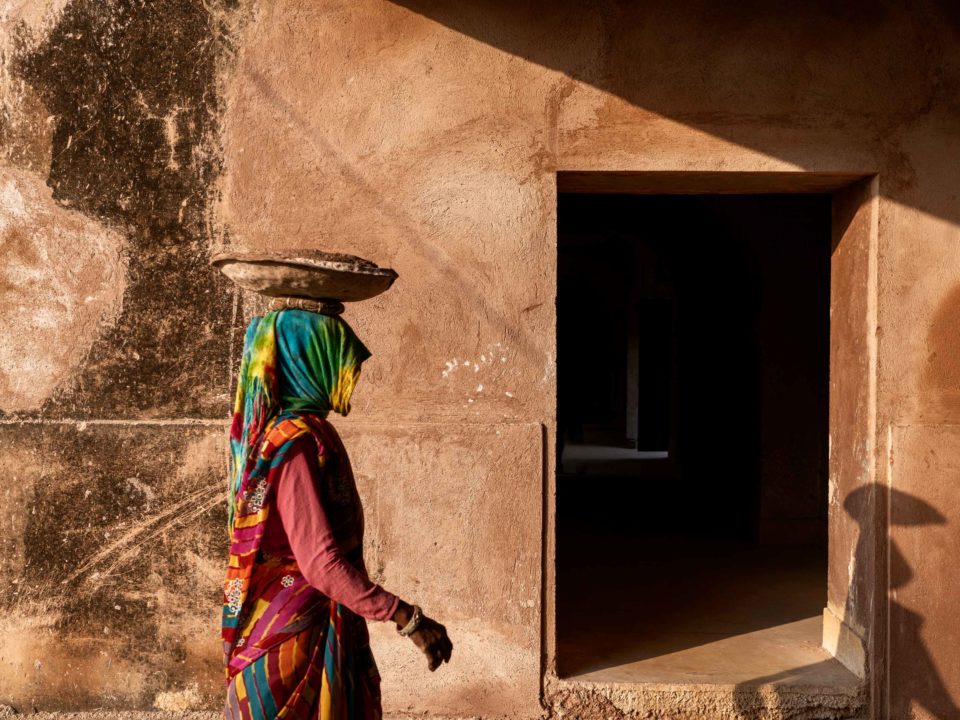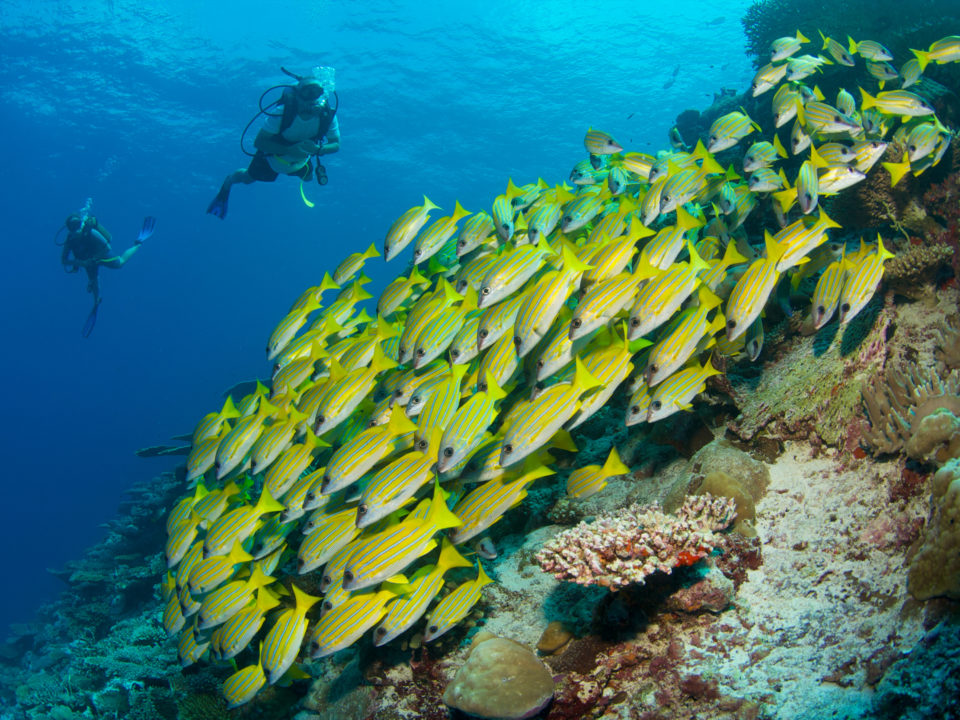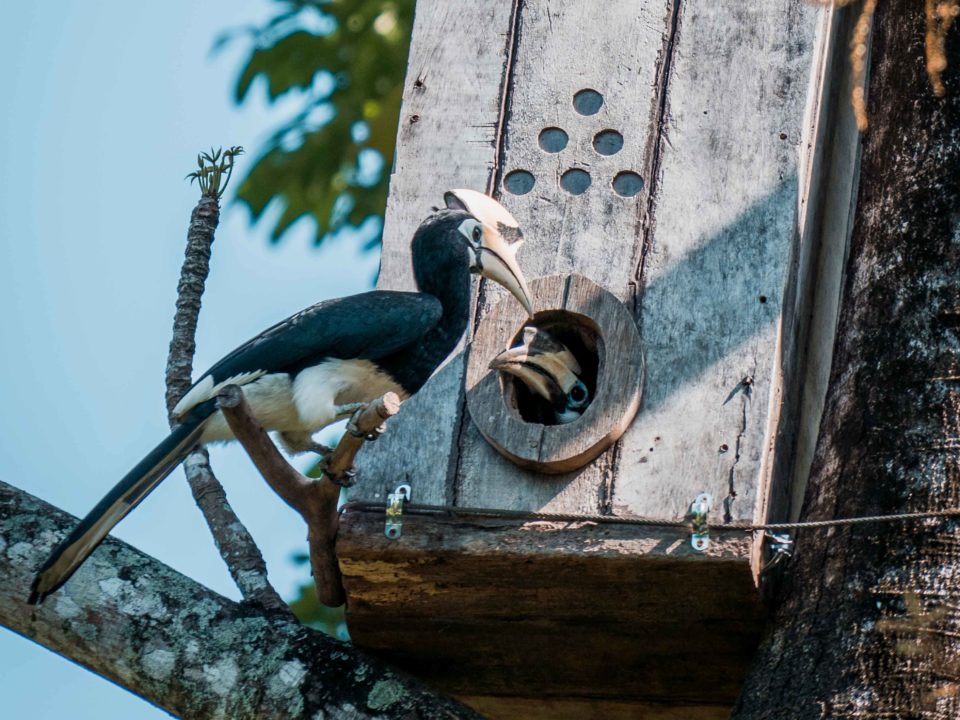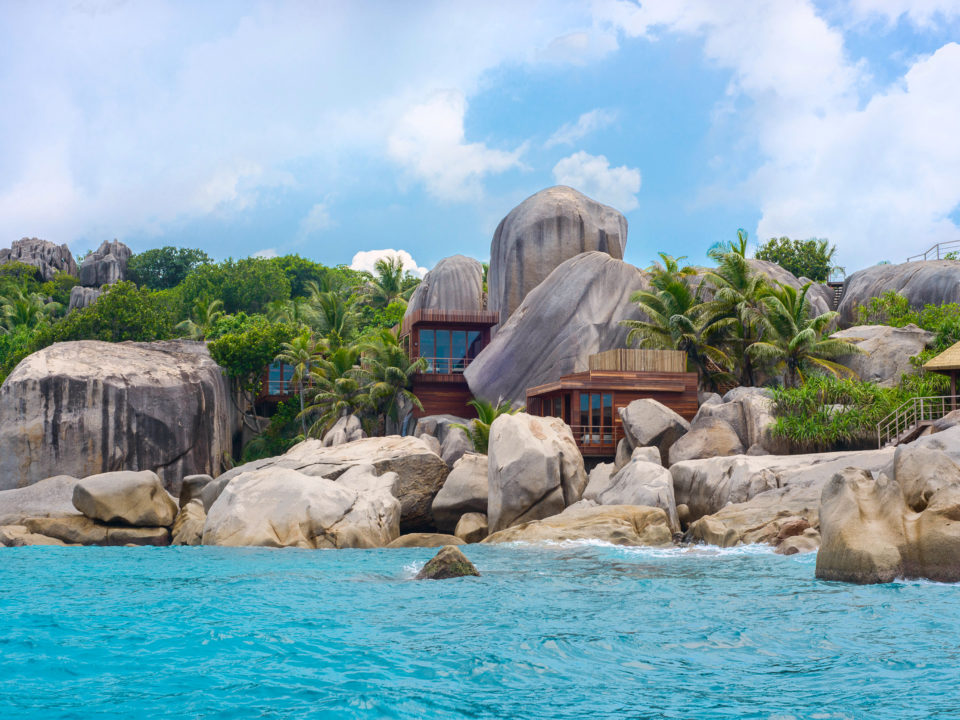Be it in the deserts of Israel, the valleys of Douro, or the atolls of the Maldives, all but the most tuned-out guests at a Six Senses hotel will be aware of their long-standing dedication to sustainable luxury and heartfelt hospitality. The claim that ‘Sustainable is not something that we do; it is who we are’ rings truer than most, not least because in Jeff Smith, sustainable is literally who he is – well, vice president of sustainability to be precise.
On the eve of Earth Day, we grabbed some precious Zoom time with Jeff to hear more about the group’s goals, the desire to reconnect and the power of people.
First off, where in the world are you Jeff?
I’m back to travelling. I was in Zighy Bay last month and I was able to visit our new hotel in Israel also – it felt almost back to normal. I’m privileged to be able to work from home in Phuket, and pop by the office in Bangkok every once in a while.
So, as VP of sustainability for Six Senses, what does your job entail?
I’m responsible for supporting our hotels and also setting goals and helping everyone achieve those goals on sustainability throughout our existing properties today – and also supporting our pipeline of new hotels under design and development. Through implementing our standards on how hotels are being built, all the way through to how they’re being operated, and everything in between.
Have you found, over the years, that as lessons are learnt, and technologies are improved, that new projects become a little easier? Or are there always new and unexpected challenges?
They’re all definitely exciting; new locations, big projects – and they’re great opportunities. We have learned a lot – we actually went through the process, about three years ago now, of updating all our technical design standards based on what we’ve found over the years. There’s a little more tech, on the sustainability side: building management systems, automation on room controls that can seamlessly help reduce energy use.
We’re also getting much more involved with renewable energy now, especially with the new-builds. And that’s very much where we see the future for hotels – definitely reducing our energy, water and waste as much as we can – but then also we’re not going to save our way out of the climate crisis, we’ve got to start generating clean energy. Resorts, especially, are a great opportunity to be self-sufficient on energy, because they’re already off-grid. We’re actually retro-fitting solar panels into quite a few of our existing hotels too.
As a brand, Six Senses is well known for its ethos of sustainable luxury. There must be particular reward in seeing guests engage with what you’re trying to do and getting feedback first-hand?
I hope that [guests] come back hungry to learn more about sustainability and engage with us. It’s definitely something in my role, and everyone’s really, that we want to connect with people when we’re doing this work. We definitely have a growing number of people showing interest and that’s really the thinking behind Earth Lab [every Six Senses has an Earth Lab space specifically for engagement with their sustainability practices]. We’ll offer free workshops, guests can come in and learn how to make their own toothpaste, or make beeswax wraps to replace clingfilm in the kitchen – these little life hacks that can help anyone nudge slightly more into a sustainable lifestyle. Which is ultimately what we’re trying to achieve.
With properties spread far and wide – from the mountains of Bhutan to the shores of Ibiza – how does it work operating in such different locales?
That’s definitely one of the challenges for a brand like ours as it grows, to maintain standards but also to keep a flexibility and a sense of place – a uniqueness – in each of our locations. The system we have is doing a good job of that now. We have a whole sustainability management framework in place with a set of guidelines that require things like ensuring that communities access to goods and services isn’t limited by the resort. So the fishermen can still get to the beach and go fishing, for example. But it doesn’t say ‘fishermen’, it just says ‘community’ and then that equally applied in the mountains of Bhutan as it does in a coastal area.
So there’s enough consistency – which is important to have so we know we’re maintaining standards – but we’ve intentionally kept it flexible enough so that it can be applied anywhere. And actually some of our sustainability guidelines actually spell that out, saying it should be customised and look at what’s really necessary in that location. If you’re in the desert, access to drinking water is gonna be a big issue and water-saving is an issue. If you’re in the rainforest, maybe not. What are the unique challenges of that environment and for those communities? We set up specific programming to make a positive impact there.
Did our recent, ahem, enforced pause afford you more time to work on certain projects? And have you noticed a shift in mindset as people are starting to travel again?
It’s interesting; during the pause we all got a lot more busy! Partly for good reasons: I think the general interest in sustainability has definitely increased over this period – especially applied to travel. Even before Covid people were talking about ‘travel with a purpose’ and coming out of it it’s even more relevant than ever. There’s really a thirst for more meaning – in life really. And that’s translating through what we’re hearing from our guests. So we’ve been working to make sure we can provide that.
We’ve set up some new programming for guests at our hotels around ‘reconnection’ – and that’s organised around reconnecting with one’s self, which is more inward-facing, but also a whole focus on a reconnection with others. That can be other travellers and others from our local communities, so exploring the local culture and doing it – and this is the real challenge – in a way that doesn’t come across as big ‘show’ but actually interacting with those communities in a meaningful way.
I think people are looking for that. And that meaningful connection, you can’t fake it. A good example from the Maldives recently was that we’ve been going from island to island teaching the local kids how to swim and getting them more interested in the marine life and conservation work. Or, you know, in Fiji we built a bridge so the kids could get to and from school. So we’re able then to offer our guests an introduction to these local communities from that perspective. They’re not introduced as a tourist, they’re introduced as our friends and they’re part of this greater good of teaching your kids how to swim, or giving your kids access to the school.
People, opportunities, knowledge. You can’t really accomplish one thing without the other. The non-profit and wildlife development world have learned that over the past couple of decades – projects that don’t consider the local communities tend to fail because of that. You can’t have one without the other, it’s holistic. Community, wildlife, environment, it’s all intertwined.
What are the things that you’re working on now that are the most exciting?
This year’s a big year for us because it’s the year that we set ourselves as the goal to be plastic-free. It started really in 2016, figuring out what is our goal, what does that mean, further defining it and then going through this whole process. We inventoried every piece of plastic in our company and had a research team of MBA students look at that inventory and advise on how to sort through it and we’re now the final stages of really trying to push out the remaining 80 per cent of plastic items in that inventory. Hopefully we’ll have some announcements later in the year about how far we’ve been able to come. So that’s big for us, to see how far we can push in wrapping that up this year.
And then there’s all the new openings. With every new hotel opening, the way I see it is it’s just expanding our reach as a group on how we can make positive impact for people and planet. So with each new opening, we’re investigating what are the local challenges the communities are facing? What are the local wildlife challenges? Figuring out who’s working out in that space and what NGOs are there and talking to them, partnering with them to set up projects to really make a difference. That’s what really excites me. Just to dream a little – where we might be in three years from now…
And it’s not all far-flung rural resorts, you’re opening in New York soon too. That must come with its own unique sustainability challenges?
It seems like partnerships are even more important for sustainability in the urban context. To give an example: in a resort, we would set aside our used cooking oil and try to make biodiesel from it ourselves. We have the space and facilities to do that. In a city that doesn’t make sense – we should find the local NGO who collects all the other used cooking oil and we can partner with them.
That network in the urban environment becomes really important. We’ll still find some ecological projects for sure, some targets. But they will be different – they’re unlikely to be wildlife focused, say. To use the New York example, we were looking at ways to partner with community gardens that were also supporting urban youth – the idea was to get them out of gangs etc and have them more engaged in these community gardens. So that also crosses those barriers between ecology and community that applies in other examples. More networking in the urban locations, for sure, but our starting point will be the same: what are the unique challenges there and who’s working on them and who can we partner with.
Explore our complete collection of Six Senses hotels and find plenty more pioneering spirit in our eco-friendly collection




